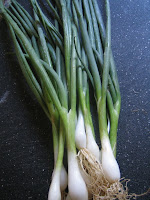The
word tomato derives from the ancient Mayan word “xtomatl”. Tomatoes which are native to Peru were not
introduced to Europe until the 16th century. The tomato is now widely used across the
world. You should enjoy the tomatoes
while they are in season; they are very cold sensitive and will be done growing
by fall.
PEPPERS
They
are native to South and Central America; following Columbus’s voyage they quickly
spread through Europe. Capsaicin is the
chemical that gives peppers the heat; they range from habenaro which are really
hot to bell peppers which have almost no heat at all. Peppers are nutritionally significant; they
contain vitamins A, C, and E. Peppers
can be enjoyed raw, cooked and are easily preserved by drying.
They are high in protein which makes
them a staple for most vegetarians. They
can be dried and used for soups or eaten raw.
Beans retain more nutrients when they are cooked uncut. They are highly perishable, but to prolong
their shelf life store in fridge in a paper bag. Dried beans however can be
stored for years…but you will want to use
them sooner.
SUMMER SQUASH
Summer squash is a very fast growing
vegetable; once it starts, one plant can produce a lot of squash. It is about 94 percent and very low in
calories; it is a great source of vitamin A and C as well as potassium and
calcium. It is easily digested; nourishing
and can replace lost fluids; which is perfect for the middle of summer when you
are losing a lot of fluids.
GREEN ONIONS
First
cultivated in India over 3,000 years age and even Iceland grows cucumbers. They are surprisingly rich in vitamin E and
about 95 percent water. They are enjoyed
raw in salads or dips as well as pickled.
They came in hundreds of varieties and colors but all should be stored
in the fridge. STATE FAIR APPLES
EGGS







No comments:
Post a Comment